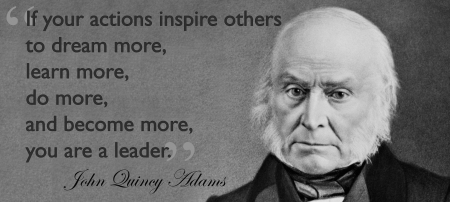If you’re not familiar with TED Talks, it’s time for you to change your life. The TED Talk that inspired this post (linked to below) is an example of the sheer awesomeness that comes out of these frank, funny, inspiring and innovative presentations. The one I’ve linked to by Dan Pallotta, entrepreneur & activist, is terrific, but if you’re not familiar with TED at all, check out Mashable’s 15 TED Talks That Will Change Your Life. After you read this post, of course. I would encourage anyone who is remotely interested in the nonprofit sector, either as a staffer, volunteer, donor or advocate, to watch the video in its entirety.
What Pallotta addresses in his TED presentation is how the system is stacked against nonprofit organizations in the United States. Charities are expected to do vast amounts of social good, but are handicapped by a set of arbitrary values that society has created for how nonprofits ought to act. Pallotta makes five main points, and I’d like to talk about three of them:
- Compensation is not competitive with the private sector. Pallotta says, “We don’t like nonprofits to use money to incentivize people to produce more in social services.” Almost everyone who works in a nonprofit does so for the mission, not to get rich. But why does it have to be either/or? He goes on, “It gives a really stark, mutually exclusive choice between doing very well for yourself and your family, or, doing good for the world.”
- Advertising & marketing is frowned upon, unless it’s donated. “We don’t like to see our donation spent on advertising in charity.” Pallotta points out that charitable giving in the U.S. has been stuck at two percent of the GDP ever since we started measuring it the 1970s. No company can grow without great marketing, so how do we expect nonprofits to raise more money if we slap them on the wrists for spending in this department?
- Taking risk on new revenue ideas is virtually impossible. “Nonprofits are really reluctant to attempt any brave, daring, giant-scale, new fundraising endeavors for fear that if the thing fails, their reputations will be dragged through the mud. Well, you and I know when you prohibit failure, you kill innovation. If you kill innovation in fundraising, you can’t raise more revenue. If you can’t raise more revenue, you can’t grow. And if you can’t grow, you can’t possibly solve large social problems.”
The average person reading this list of problems might not see the issue. After all, there are no laws limiting compensation, prohibiting marketing or keeping organizations from trying new fundraisers. So why not do it? Surely the results will speak for themselves, and the public will recognize the good done and not have a problem with the “unconventional” methods used. I can’t count on all my fingers and toes the number of times I’ve heard someone say they won’t donate to the American Cancer Society because they have an outrageously overpaid CEO (ranked #2, in HuffPost’s 10 Insanely Overpaid Nonprofit Executives – the existence of this article just further illustrates the compensation issue).
I propose a shift in the role of managers of nonprofits everywhere. Please, by all means, continue to toil away for a meager income and a greater social good. It’s a worthy existence; I should know, as an adult who’s been working in the nonprofit sector since college. But in between rallying the team, calling donors and sponsors, planning the new theme for the same fundraising event that’s been successful for years, and putting out all the fires you have to put out, consider being an advocate for yourself. Nonprofit managers are going to have to lead from within the industry to push for a paradigm shift. It’s a change in culture, a change in functions and a change in perspective, to be sure. It won’t be easy, and it won’t happen overnight. But if managers aren’t the ones leading the charge, who will? If you don’t talk with your community about the challenges facing the nonprofit world, how can you expect their support when you try something new? I know you can be an advocate; you are every day. Need some inspiration to make it happen? Watch the video I posted below. You won’t regret it.
Activist and fundraiser Dan Pallotta calls out the double standard that drives our broken relationship to charities. Too many nonprofits, he says, are rewarded for how little they spend — not for what they get done. Instead of equating frugality with morality, he asks us to start rewarding charities for their big goals and big accomplishments (even if that comes with big expenses). In this bold talk, he says: Let’s change the way we think about changing the world. source: http://www.ted.com

